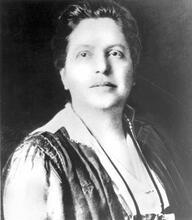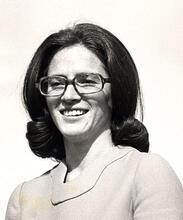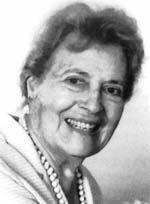Susan Brownmiller
Susan Brownmiller is an American radical feminist writer and journalist and a leader in the second-wave feminist movement of the 1960s through 1980s. She is best known for her landmark book Against Our Will: Men, Women, and Rape, the first comprehensive study of sexual violence. Against Our Will, which has remained in print since its publication in 1975, transformed how people talked about rape. It demanded that we understand sexual violence as a political problem, a systematic act of “intimidation” that “kept all women in a state of fear.” This interpretation ran counter to the deeply ingrained conception that rape was an ordinary crime, of lust or passion, that a savvy woman could prevent. Against Our Will is widely credited for inspiring judicial reform that made law and court procedure more equitable for rape survivors.
Early Years
Susan Brownmiller (née Warhaftig) was born in Brooklyn, New York, on February 15, 1935. Her father, Samuel Warhaftig, was a sales clerk at Macy’s and her mother, Mae Warhaftig, was a secretary. (She changed her legal name to her pen name, “Brownmiller,” in 1961.) Growing up, she took Hebrew and Jewish history lessons at the East Midwood Jewish Center on Ocean Avenue in Brooklyn. Though she was dismayed as a child to learn that as a girl she could not become a rabbi and turned away from Judaism as a religious practice, in her statement to the Jewish Women’s Archive, she still credited these early Jewish history lessons, where she learned about violence against Jews in pogroms and in the Holocaust, as formative to her later commitment to “fight against physical harm, specifically the terror of violence against women.”
After attending Cornell University for two years on scholarships, Brownmiller first pursued an acting career before taking on editorial work for confession magazines, where she built skills that led to a career in journalism. By 1968, at 33, she was working simultaneously as a reporter for The Village Voice, a news writer for ABC-TV, and a freelance contribution for a range of magazines. In her 1999 memoir, she reflected that she was a lone woman in a “defiantly male” milieu, where her coworkers made it clear that she didn’t belong or should feel “lucky” to be taking “a man’s job.”
Raising Consciousness
Brownmiller’s first organizing experiences were in the civil rights movement. In the early 1960s, she joined CORE (Congress for Racial Equality), registered voters in East Harlem, and in 1964, as a volunteer with SNCC (Student Nonviolent Coordinating Committee), she took part in the Freedom Summer, registering Black voters in Mississippi and raising awareness of voter discrimination.
It was through this work that she met her friend Jan Goodman, who brought her to her first feminist consciousness-raising meeting in 1968, hosted by the New York Radical Women.
“Feminist consciousness-raising” encouraged women to talk about their experiences as women with other women in a group, allowing participants to see the commonalities they have with other women and understand their problems within a larger socio-political context.
Initially skeptical, Brownmiller became convinced of the urgency of feminist organizing, and the power of consciousness-raising as a technique, as the conversation turned to abortion. For the first time in their lives, women in the group talked about procuring illegal abortions-including Brownmiller. She later wrote in her memoir, “Saying ‘I’ve had three abortions’ aloud was my feminist baptism, my swift immersion in the power of sisterhood. A medical procedure I’d been forced to secure alone, shrouded in silence, was not a ‘a personal problem’ anymore than the matter of my gender in the newsroom was a ‘personal problem.”
Brownmiller joined the New York Radical Women and Media Women. As a member of the latter, Brownmiller co-organized the 1970 sit-in at the Ladies Home Journal to protest its stubborn refusal to adapt its messaging for women for the new era. On March 18, over a hundred women enlisted from an ideologically diverse mix of organizations that included New York Radical Women, NOW, and the Redstockings, descended upon the magazine’s headquarters in New York to present a list of “unnnegotiable demands.” The sit-in lasted for eleven hours and was covered by every major media outlet. Reporters listened (and broadcasted) as protestors talked about their lives and their mothers’ lives to a national audience.
Their demands included both changes to how the Journal operated and the content it published. On an operational level, they demanded that the Journal provide free in-office daycare for employees, that all editorial employees and columnists for the Journal be women, and that women of color be hired at all levels. They also demanded a complete “reorientation” of the Journal away from the elevation of women’s service to the domestic realm and instead to “the concept that both sexes are equally responsible for their own humanity,” which included the end to advertising that exploited or degraded women and fiction that idealized “women’s traditional roles.” They also asked that the Journal give control of one issue to the Women’s Liberation Movement and a monthly column.
In addition to capturing national attention—their primary aim—the protests also achieved some of these demands: the Journal promised to research the feasibility of a daycare and committed to pay $10,000 to the Women’s Liberation Movement for eight pages of their August issue. The $10,000 was divided between the Women’s Center, a daycare center, an abortion project, a women’s newspaper, a women’s film collective, and a bail fund.
Against Our Will: Men, Women, and Rape
In her memoir, Brownmiller draws a direct relationship between the consciousness-raising efforts and protests that began in the 1960s and the anti-rape movement that formed in the 1970s. The movement provided women the “social sanction to speak openly about sexual matters” and the climate to “articulate out loud” their experiences with violence where both had been lacking before.
Brownmiller was first convinced that rape was a political issue, affecting all women, and not only an ordinary crime a smart woman could prevent, at a consciousness-raising meeting in 1970, when other women began to talk about rape. Though she began attending and organizing further meetings and workshops on rape, she realized that such meetings were not enough, and a more systematic study of rape was imperative. It was with this conviction that she began work, in 1971, on Against Our Will: Men, Women, and Rape, the first comprehensive history and analysis of sexual violence.
At the time, the image of the “hysterical” women who lied about rape with ease and abandon permeated legal code, psychoanalysis, and popular discourse. When rape was acknowledged as a reality, it emerged as a “property crime”—a violation of the raped women’s father or husband—or as an ordinary crime of passion that the woman provoked or allowed. In historical accounts, rape was invoked as an inevitable byproduct of war, and an attack on the enemy nation, not on the individual woman. Marital rape exemption clauses made prosecution of marital rape a near impossibility.
In Against Our Will, published in 1975, Brownmiller wrote a history and analysis of rape that placed its impact on women at the center. Instead of viewing rape as a crime of “man against man,” she defined it as “if a woman chooses not to have intercourse with a specific man and the man chooses to proceed against our will.” She argued that rape represented a conscious exercise in power and control, a fundamental function of the patriarchal social order, rather than an inevitable part of human nature. Moreover, she described rape as the process that kept “all women in a constant state of intimidation” and maintained patriarchal power. By locating sexual violence as the linchpin of the patriarchal system she was instrumental in cementing rape—and the concept of “rape culture”—as a critical feminist issue.
Against Our Will unraveled pervasive myths about rape and rape victims, fighting charges that women lied about rape, that women were at fault, and that rape was only committed by strangers. Brownmiller demonstrated, through case studies and interviews, that women could not prevent (or provoke) rape through adjustments to their appearances or lifestyles. She also introduced the concepts of “date rape” and “marital rape” to describe how rape could and did happen within romantic relationships and drew attention to the problem of sexual abuse of children by other family members.
Against Our Will: Reception and Aftermath
A best-seller, Against Our Will captured attention and opened dialogue not only among feminists, but in mainstream media as well, eliciting favorable reviews from the Chicago Tribune, New York Times, and the Los Angeles Times, amongst others. It was praised for its originality, for its depth of research, and for transforming how people understood and talked about rape. At the same time, some feminists, including Angela Davis and bell hooks, critiqued Against our Will’s analysis of race, and particularly its treatment of false accusations against Black men in the South and white women’s role in lynching. Brownmiller’s analysis, which placed most of the blame on white men, was criticized as unduly sympathetic to white women.
For years after publication, Brownmiller toured the country, giving interviews to television and radio programs and giving talks at colleges and universities, where she inspired some college students to start rape crisis centers and hotlines. Brownmiller’s work is also credited for influencing the overhaul of state rape laws that occurred between 1975 and 1979, including the abolishment of the “corroborating witness rule” that required the testimony of bystanders for a conviction—a law that presumed the victim to be dishonest or unreliable—and the introduction of “rape shield laws” that prevented the victims’ sexual history from being used against them in court.
Feminist Work in the 1980s-1990s
Throughout the 1980s and into the 1990s, Brownmiller was active in the anti-pornography movement as a leader in the organization Women Against Violence in Pornography and Media (WAVPM). It was a cause she had depicted in Against Our Will as “central to the fight against rape.”
Brownmiller also published two further works of feminist nonfiction. The first was Femininity, published in 1984, a critical history of the cultural construction of “femininity” and associated beauty standards. In a moment when expectations of femininity were becoming retrenched amidst anti-feminist backlash, Brownmiller asserted that these demands imposed limitations on women’s lives. It was praised as “essential reading” by the New York Times Book Review. The second was In Our Time: Memoir of a Revolution (1999), a memoir and chronicle of the women’s liberation movement. This work was the product of over 200 interviews with other feminists, whose experiences and memory she intertwined with her own, written at a time when, as Brownmiller wrote in the introduction, she felt that “much of the movement’s story had already been lost or distorted.” In Our Time worked to combat this erasure.
Brownmiller is also the author of the novel Waverly Place (1989) and the memoir Seeing Vietnam: Encounters of the Road and Heart (1994). In 2017, she published My City High Rise Garden, a collection of essays about her 35 years of experience with urban gardening.
Brownmiller’s papers are held at the Schlesinger Library, Radcliffe Institute.
Selected Works
Against Our Will: Men, Women, and Rape. New York: Simon & Schuster, 1975.
Femininity. New York: Simon & Schuster, 1984.
In Our Time: Memoir of a Revolution. New York: Dial Press, 1999.
My City High Rise Garden. Rutgers, NJ: Rutgers University Press, 2017.
Seeing Vietnam: Encounters of the Road and Heart. New York: Harper Collins, 1994.
Shirley Chisholm: A Biography. New York: Doubleday, 1970.
Waverly Place. New York: Grove Press, 1989.
Antler, Joyce. Jewish Radical Feminism: Voices from the Women’s Liberation Movement. Goldstein-Goren Series in American Jewish History. New York: New York University Press, 2018.
Cohen, Sascha. “How a Book Changed the Way We Talk About Rape.” Time, October 2015. https://time.com/4062637/against-our-will-40/
Cooke, Rachel. “US Feminist Susan Brownmiller on Why Her Groundbreaking Book on Rape is Still Relevant.” The Guardian, February 2018.
Jackson, Stevi. “Classic Review- Against Our Will,” Trouble & Strife, Issue 35, Summer 1997.
Susan Brownmiller.com. http://www.susanbrownmiller.com/susanbrownmiller/index.html














